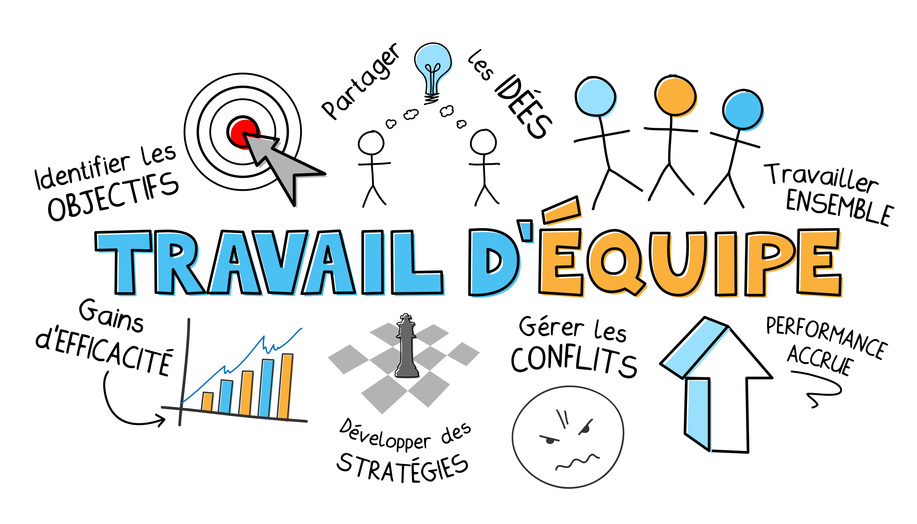2017 : managers must review their copy
Introduction
Over the past few years, several large-scale changes have been introduced, directly affecting how information now circulates, within and without firms. This phenomenon has been greatly accelerated by the overhauling of information systems and the intensive use of NICTs (blogs, forums, collaborative websites, social networks and media).
These changes increasingly call into question how firms traditionally work and require them to make a certain number of changes, to adapt to these new mutations, especially from the management point of view. While they may initially have a destabilising effect, these modifications, are nevertheless an opportunity. Firms must not forget that they are indeed an opportunity and a necessity for their own survival, adapting to an ever-changing world.
For it to work properly we need to be careful not to overdo it; firms must not become democratic. I will be discussing this further in more detail in a future post. Despite what consultants and lawyers working as partners might say, the captain must remain a benign dictator, taking everybody’s point of view into consideration, but then making decisions and setting the direction, which all firm employees must fall in line with, and work towards.
The end of middle management
These modifications don’t call professional hierarchy into question, yet they do erase the very principle of social hierarchy, in favour of better connections between men and women, circulating and sharing information and knowledge. These new methods and processes will empower (and indeed already do empower) fluidity and will bring the necessary material for the firm to evolve as well as increase its capacity to innovate.
Mass use of new technology has gradually helped to break economic frontiers down, with markets now reaching all four corners of the earth. These frontiers not only involve markets, but even firms themselves, in their inner workings: more and more firms have to review how they work with their various subsidiaries across the world, to create a common DNA, as within a living organism.
Of course, this new paradigm requires everyone to put in huge efforts to adapt and the primary players in these changes have to be the managers: old-school managers, who have to learn to change, contemporary managers and, of course, those of tomorrow.
Middle managers will die out, and the last survivors of this species on the verge of extinction will have died out in the next decade. Managers now have to evolve into leaders / coordinators, ensuring the best circulation and spread of information and skills, while positioning themselves as a team leader: they must be capable of embodying shared values, handle conflicts with qualities worthy of a diplomat or respected “wise woman†that you aspire to follow, as you would a tribal chief.
Leadership: the new paradigm
This new paradigm requires stronger leadership from managers than before: they must be followed not just because they were appointed, but because they have the aura, self-assurance and leitmotiv needed to rally their staff.
The manager of tomorrow must no longer concentrate solely on “giving directives†but most of all, listen to team members, to sum up the as yet under tapped substance of this shared intellect, this group intelligence capable of bringing about the transformations and innovation needed for firms to adapt to the heralded future world… which is in fact already upon us.

Mind you, we are indeed talking of group intelligence not group stupidity: we know all about the damage that badly-led brainstorming can lead to by getting the group to reach an absurd consensus.
As an extra, this new form of participatory management can be another way to show employees their worth, outside of adding an extra digit to their payslip: they are listened to and their opinions and ideas are factored into the corporate decision-making process designed to work towards the corporate goal.
New skills
One skill that’s banished all too often, imagination, needs to reclaim its place in the spotlight: the need to adapt to changes under way will gradually propel this skill into the top five skills needed to act as a manager tomorrow. Managers will no longer be able to content themselves with controlling and managing their staff: they will have to take part in all operations themselves.
Intelligence, creative flair, imagination and a propensity for innovation: each of these skills involving “attention to detail†today will be the cornerstones of employee skills for tomorrow, while new roles as influencers, managers of perception, growth hackers and information “warriors†emerge with this new paradigm.
Conclusion
All these coming modifications, by cutting back tensions between the various stakeholders within a firm, should help lower employee turnover, the destroyer of corporate DNA. It should also inspire a taste for excellence in work in order to transform the current career ladder into a true meritocracy, so that the most effective can climb up without the “pressure of timeâ€.
Managers must now emerge from their bubble and “inspire desire†in their staff to follow their lead, and help the company develop: they can no longer remain in their corner simply centralising decisions and information, but reach out to their staff: increasingly connected with new technology, they need more than ever… to reconnect with their “tribeâ€.
Christophe Casalegno
You can follow me on : Twitter | Facebook | Linkedin | Telegram | Youtube
Laisser un commentaire